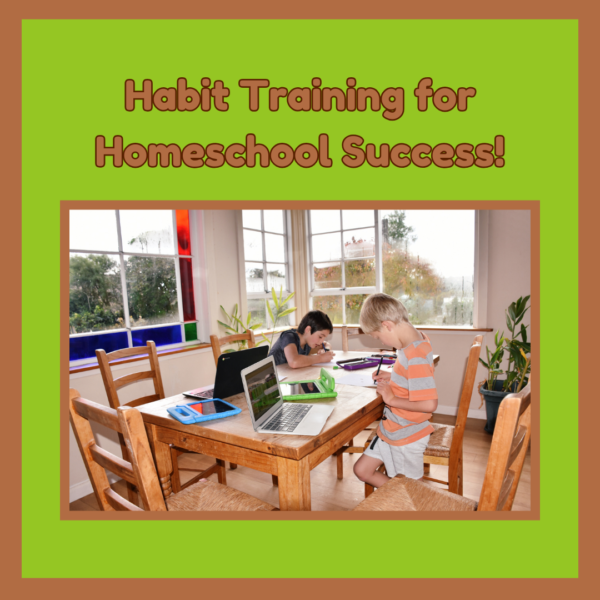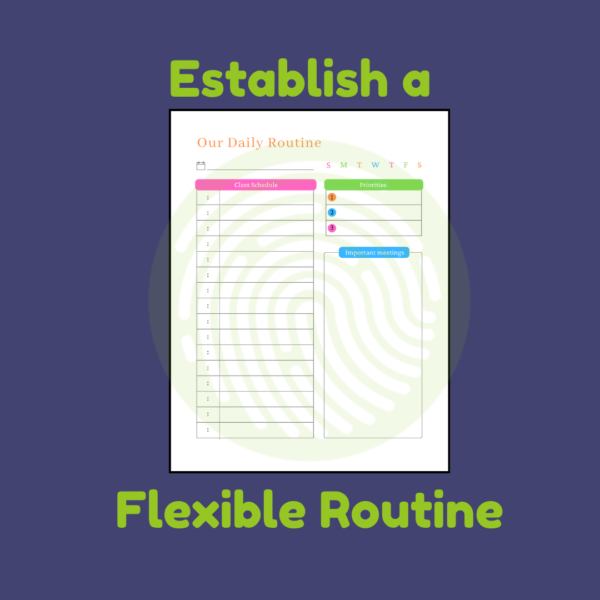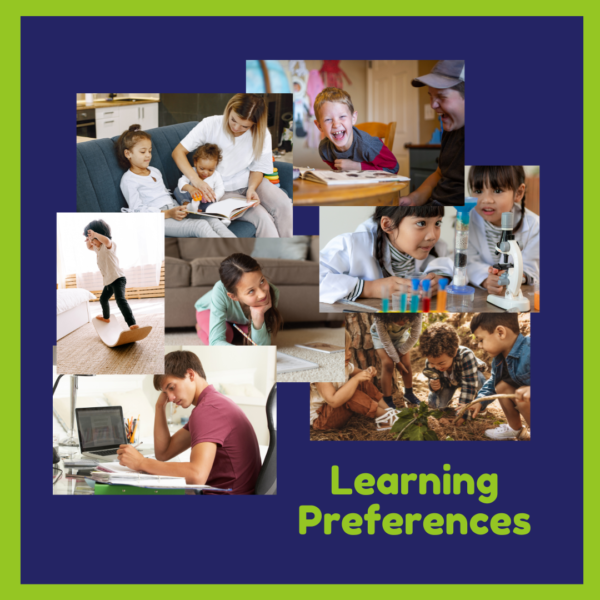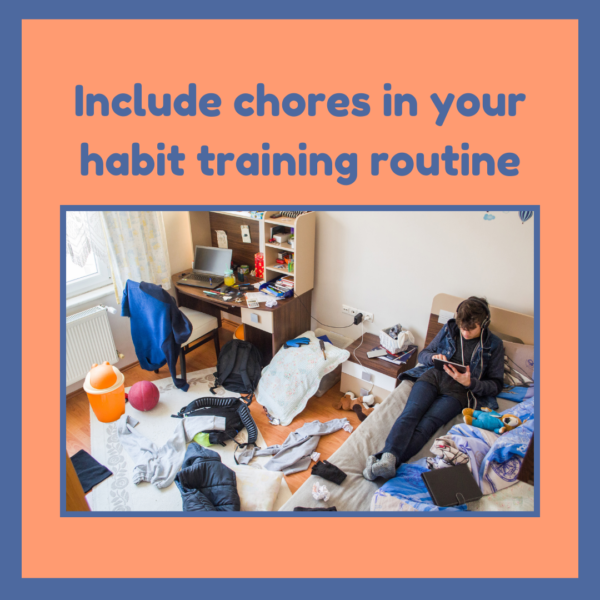Imagine a world where your homeschooling days flow seamlessly, where your children wake up eager to dive into their studies, and where battles over completing assignments are a distant memory. This is not a far-fetched dream but a tangible reality that you can achieve through the powerful method of habit training for homeschool success. It’s not about having strict rules or enforcing military discipline, but about nurturing positive routines that make learning enjoyable and life skills second nature. In today’s blog post, we’ll explore the transformative power of habit training and how it can revolutionize your homeschooling experience. You’ll discover practical strategies to instill productive habits in your kids, ensuring they manage their time effectively, stay motivated, and develop a love for learning. These techniques will not only make your days smoother but will also set your children up for lifelong success, equipping them with essential skills they need in their academic journey and beyond. Ready to turn chaos into calm? Let’s dive in and unlock the secrets to a harmonious and effective homeschool environment.

Understanding the Basics of Habit Training
Habit training is a powerful tool that can transform your homeschooling experience. By understanding the basics of habit training, you can effectively instill positive routines in your children and set them up for success. You can even use habit training if you use a relaxed homeschool approach. So, what exactly is habit training?

Habit training involves teaching your children to develop good habits that will benefit them in their daily lives. It’s about creating a consistent routine and setting clear expectations for behavior and tasks. By establishing these habits, you can help your children become more independent, responsible, and motivated learners.
When it comes to homeschooling, habit training plays a crucial role in creating structure and discipline. It helps children understand what is expected of them and provides a sense of stability in their learning environment. By incorporating habit training into your homeschooling routine, you can create a positive atmosphere where learning becomes second nature.
Identifying Key Habits for Homeschool Success
The first step in implementing habit training for homeschool success is identifying the key habits that will make a significant impact on your children’s learning journey. These habits will vary depending on your family’s unique needs and goals. Take a moment and make a list of what you would like your kids to be doing. Try to avoid the list of what you want them NOT to do. If it is easier to generate the behaviors that are bugging you, start there, but convert your NOT list to what habits you want to replace the NOTS.

Start by assessing the areas where your children may struggle or need improvement. Do they sleep in too late? Do they have difficulty staying focused to complete worksheets? Are they easily distracted with every sound in the house? Do they get distracted with their electronics? Do they struggle with time management? Once you have identified these areas, you can then work on developing specific habits to address them.
For example, if your child has trouble staying focused during independent work time, you could try on eof these strategies. Establish a habit of starting each day with a walk, run, or bike ride outside. Before doing paperwork, do a short brain break exercise together. Do your own task by sitting in the same room while your child is working so that your presence helps sustain focus, while you are also available to answer questions if needed. If time management is an issue, consider implementing visual aids such as timers or calendars or a short reward activity to help your child stay on track.
Creating a Consistent Daily Routine
A consistent daily routine is essential for habit training and homeschool success. Children thrive on structure and knowing what to expect each day. By creating a consistent routine, you provide a sense of stability and predictability that can help your children feel more secure and focused.
You can start by establishing a daily schedule that includes dedicated time for academic subjects, breaks, physical activity, and other activities. Make sure to include time for self-care, such as meals, rest, and relaxation. Consistency is key here – try to stick to the same schedule every day as much as possible.
Rather than using a time-based schedule, our family preferred a more flexible routine so that projects and deeper research could be done within a longer, extended time when necessary. I established the routine as a schedule so that I would know what days were special activities, like music, art, homeschool socials, 4-H club meetings, etc. When posting our routine for the family, I would remove the predicted times so that our routine flowed through the day. The specials were almost always in the afternoon; therefore, reading, writing, and math were a must to get done in the morning. Other subjects were woven into the routine, mainly on the days when there weren’t specials and in our evening family read-aloud time.
If you need a tool to help set goals, establish a routine, or keep lesson plans and monitor progress, take a look at our Complete Homeschool Planner! These downloadable forms are ones you can print and use at whatever ages or stages your children are. There are even forms for planning high school, keeping track of credits, assignment sheets, and a sample high school transcript! Click here to grab your Homeschool Planner!

When your kids are teens, involve your children in the process of creating the routine. Discuss their schedule with them, especially if they have a job, and explain why time management is important. This will help them understand the purpose behind the routine and increase their motivation to follow it.
Setting Clear Expectations and Rewards
In order for habit training to be effective, it’s important to set clear expectations for behavior and tasks. Clearly communicate what you expect from your children in terms of their responsibilities, behavior during work time, completion of assignments (daily or weekly?), etc. Be proactive rather than reactive.
Make sure these expectations are age-appropriate and realistic. Break down larger tasks into smaller steps or milestones to make them more manageable for your children.
In addition to setting clear expectations, it’s also important to establish a system of rewards to motivate your children. Rewards can be both intrinsic (having your child express a daily or weekly goal) or extrinsic (such as praise or recognition, small treats, or privileges). When implementing positive reinforcement techniques, focus on praising and acknowledging your children’s efforts and progress. Celebrate small wins and milestones along the way to keep them motivated and engaged. Be specific. “You did a great job completing those 2 pages of math!” “I’m so proud that you picked up your clothes without me asking first.”
Positive reinforcement is a powerful tool in habit training for homeschool success. It involves rewarding desired behaviors or actions in order to encourage their repetition. Find out what motivates your child the most and use it as an incentive for completing tasks or exhibiting positive behaviors. Nearly always, kids are motivated by spending time with YOU in a fun way. Some ideas: go to a park to throw a ball around, play a board game, play Kahoot! or , watch a tv show your child likes, have a cup of tea and talk, or go for ice cream. Whatever your relational reward, be sure to stay off your phone! Be present with your kiddo!
Tailoring Habit Training to Individual Learning Preferences
Every child has unique learning preferences, and it’s important to tailor habit training techniques to accommodate these individual differences. Some children may get more work done on a clipboard while sitting on the couch. Some kids read better if they are sitting in a comfy chair. Some children need to be able to chatter while they do paperwork. Others need complete quiet.

Observe your children’s learning preferences and adapt your habit training strategies accordingly. If you are unsure what are your child’s learning strengths and weaknesses, try using multisensory activities to practice the hardest skills. Assign projects with choices that involve hands-on creations or movement.
By tailoring habit training to individual learning preferences, you can make the process more engaging and effective for your children.
Celebrating Wins and Milestones: Recognizing the Impact of Habit Training
As you implement habit training in your homeschooling journey, it’s important to celebrate wins and milestones along the way. Recognize the impact that habit training has on your children’s progress and overall success. Celebrate both individual successes and whole family progress.
Sometimes my kids followed through on our routine or weekly goals, but I was the one who fell short in keeping the habit going. When that happens, have a family meeting and acknowledge that habits are hard to develop. I would tell my kids that while I was in charge of most things and our homeschool was not a democracy, we still were working together as a team. I would thank the kids for their efforts and good work and acknowledge that habits are hard to establish for adults also. Every day and every week is a new start. Adjust the goals for next week and try again. Mistakes and failure are all part of learning!
Take time to reflect on how far your children have come since implementing new habits. Acknowledge their efforts and growth, both academically and personally. Write it down. Make a certificate. Post their name on a fridge. Think of some little way to instill confidence that your child is on the right track. This recognition will not only boost their self-esteem but also reinforce the importance of habit training in their lives!
Monitoring Progress and Making Adjustments Along the Way
Habit training is an ongoing process that requires monitoring and adjustments. Keep track of your children’s progress and evaluate the effectiveness of the habits you have implemented.
Regularly check in with your children to see how they are doing and if any adjustments need to be made. I hear frequently that moms haven’t checked their teens’ school work or work habits for several weeks only to find their responsible teen hasn’t done any school work or they are struggling to keep up! Rather than yell, ground, or remove privileges like a phone, remind yourself that you also need to adjust your habit of monitoring and checking.

Take time to have a lesson to talk with your teen about setting priorities and establishing their own routine. Ensure that your teen knows you will be more available to explain, discuss, check, and discover what they are doing for their school work. Set up a time to do that checking. Ask your teen whether a daily or weekly check is their preference. You may be surprised that your kid actually welcomes you paying closer attention to their efforts!
Be open to making changes and adapting your approach as needed. Remember, habit training is a dynamic process, and what works for one child may not work for another. Stay flexible and willing to experiment until you find the strategies that work best for your family.
Overcoming Challenges: Dealing with Resistance and Setbacks
It’s important to acknowledge that habit training may come with its fair share of challenges, resistance, and setbacks. Your children may initially resist new habits or struggle to maintain consistency.
In these situations, it’s crucial to approach challenges with patience, understanding, and empathy. Talk openly with your children about their concerns or difficulties and work together to find solutions. Rule #1 for you: Talk, don’t yell.

If a habit is not sticking or causing frustration, take a step back and reassess. Is there a different approach you can try? Can you break down the habit into smaller steps? Remember that setbacks are a natural part of the learning process, so don’t get discouraged if things don’t go as planned initially. You are always welcome to join our private FaceBook group, Homeschool Help for Special Needs. The moms in the group are so kind and willing to share ideas!
Cultivating a Growth Mindset through Habit Training
Habit training goes beyond just developing routines – it also cultivates a growth mindset in your children. A growth mindset is the belief that abilities can be developed through dedication and hard work.
By instilling positive habits in your children, you teach them valuable life skills such as perseverance, resilience, and self-discipline. They learn that their abilities are not fixed but can be improved with effort and practice.
Encourage your children to embrace challenges, view mistakes as opportunities for growth, and believe in their own potential. By fostering a growth mindset through habit training, you empower your children to become lifelong learners and achieve their full potential.
Fostering Independence and Responsibility in Homeschooled Children
One of the key benefits of habit training for homeschool success is the development of independence and responsibility in your children. As they become more proficient in their habits, they gain a sense of ownership over their learning journey. This is one of the main benefits of homeschooling that research on matriculation to college has shown.
Encourage your tweens and teens take responsibility for their own learning by involving them in the habit training process. Let them have a say in creating routines, setting goals, and monitoring progress. This involvement will not only increase their motivation but also foster a sense of independence and self-reliance.
As your children become more independent learners, you can gradually step back and allow them to take charge of their studies. This shift towards self-directed learning will not only benefit them academically but also prepare them for future endeavors.
Conclusion: Embracing a Brighter Future Through Habit Training
Habit training is a powerful tool that can transform your homeschooling experience. By implementing effective habit training techniques, you can create a harmonious and effective homeschool environment where learning becomes enjoyable and productive.
Through understanding the basics of habit training, identifying key habits for homeschool success, creating consistent daily routines, setting clear expectations and rewards, implementing positive reinforcement techniques, tailoring habit training to individual learning styles, celebrating wins and milestones, monitoring progress and making adjustments along the way, overcoming challenges with resilience and perseverance, cultivating a growth mindset in your children, fostering independence and responsibility – you are equipping your children with essential skills that will benefit them throughout their academic journey and beyond.
So, embrace the power of habit training and unlock a brighter future for your children. With dedication, patience, and a growth mindset, you can transform your homeschooling days into a seamless and rewarding experience.
Grab your FREE e-book guide to revamp your homeschool for success!
Are you new to homeschooling, or just wanting a fresh start? Download our FREE “How to Homeschool in 6 Easy Steps” guide and get valuable insights from Sue’s 30+ years of experience as a special educator and homeschool mom of 4!
Want to know about new products and blogs?
Join our email newsletter to be the first to know about a new homeschool and special needs blog, and new products from our shop! Sign up for only the newsletter, or grab your FREE “How to Homeschool in 6 Easy Steps” guide and you will also be added to the newsletter!
Also, join our Facebook group!
Join our new “Homeschool Help for Special Needs” Facebook group! It is a place for homeschool moms to ask questions about homeschooling a child with special learning needs, share teaching and curriculum ideas that have worked (and those that bombed), and be real about the unique challenges of homeschooling with special needs. If you want to join us, be sure to answer the member questions to help us keep this private group secure. Join us now!

